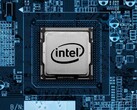The Zen 2-based Threadripper is here, and it may have redefined desktop multicore performance even before its official release. The Ryzen 9 3900X impressed in this regard in our review, but two recent Geekbench listings blow its multi-core scores out of the water. To recap, the Ryzen 9 3900X is currently the king of our Geekbench leader board, with a score of 43,978 points. By contrast, the Threadripper 2950X and Threadripper 2970WX scored 36,198 and 32,029 points respectively, with the Core i9-9900K sandwiched between them on 34,233. Meanwhile, the Core i9-9900K remains king of the hill on single-core performance, with the Ryzen 9 3900X trailing by 7%.
Enter the 7 nm Threadripper, the 32 core variant of which averaged a monstrous 94,058 points in Geekbench. There are other factors at play here, with the CPU being tested on Linux and alongside 128 GB of RAM, which will probably skew the scores somewhat. However, there is no denying that this is a mighty impressive score. We have not tested the Threadripper 2990WX, which would be a more direct comparison with this upcoming Threadripper CPU as they both have 32 cores, an almost 2.7x uplift from the Threadripper 2950X and Threadripper 2970WX is staggeringly good. AMD seems to have made some gains on single core performance compared to the Ryzen 9 3900X too, although the Threadripper Zen 2 still falls short of the Core i9-9900K in Geekbench.
The Geekbench listing also reveals that the 32 core Threadripper, codenamed Sharkstooth, reports a 3.6 GHz base clock, along with 128 MB of L3 cache and a combined cache of almost 150 MB. The CPU will support Simultaneous multithreading (SMT) too as previous Threadripper processors have, although there is currently no word on boost clock speeds. Expect the 32 core version of the next-generation Threadripper to have at least a 200 W thermal design power (TDP) if its predecessors are anything to go by. An even more powerful 64 core SKU could be in development too, the performance of which we cannot even begin to imagine.
Source(s)
Geekbench (1) (2) via @momomo_us






























